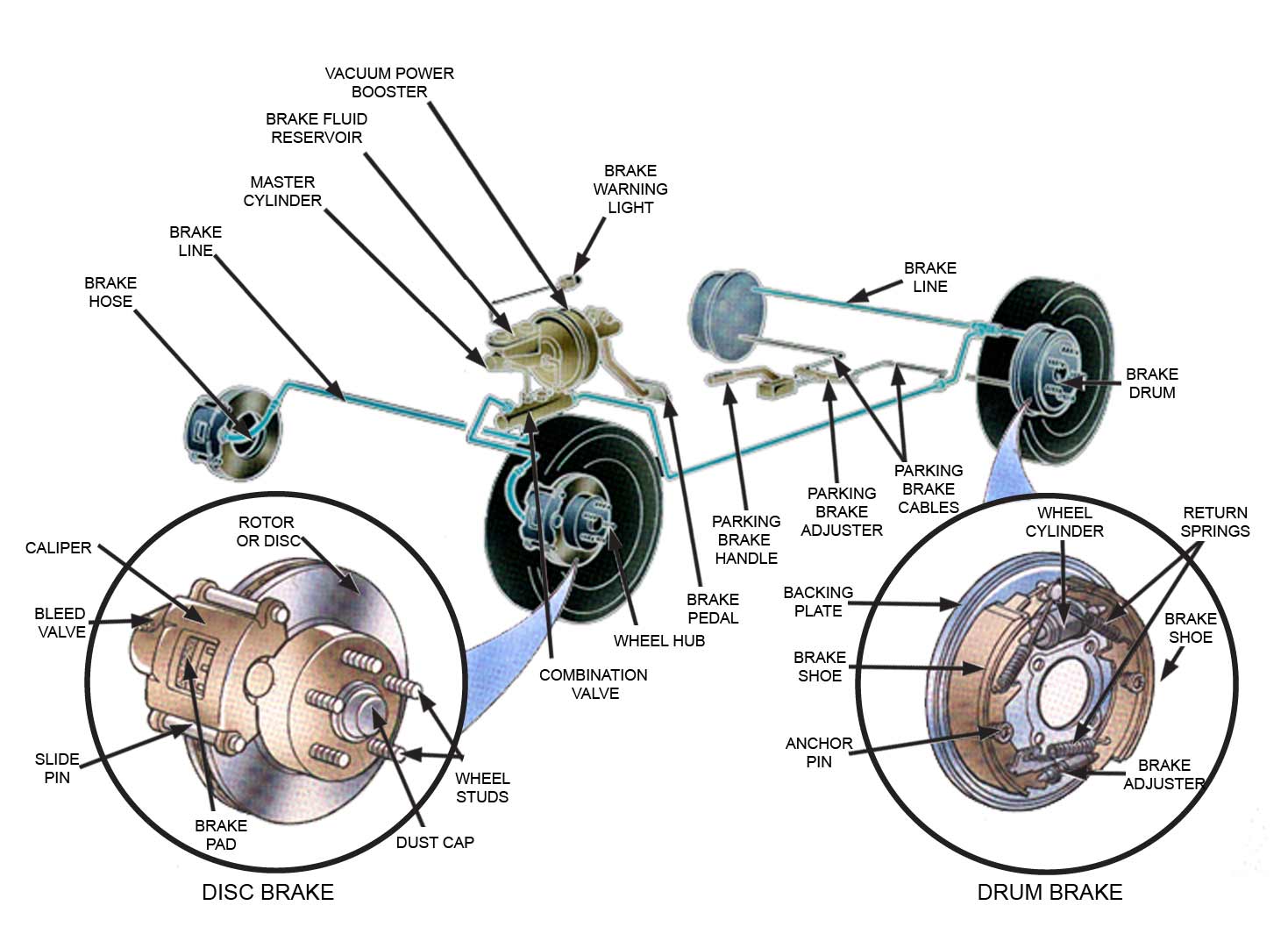Brake Repair
Leverage, friction, and hydraulic force are needed to bring everything to a halt. The driver’s leg pressure and foot pedal are what supply the leverage. Levers and rods are what connect the pedal to the power booster. Using either the hydraulic pump or the engine vacuum, the power booster transfers the leverage’s force to the master cylinder.
The heart of your vehicle’s hydraulic system is in the master cylinder. The master cylinder uses leverage to apply the force needed to deliver brake fluid in the steel lines, rubber hoses, valves to the wheel cylinders, and hydraulic calipers. Afterwards, friction is created by the hydraulic pressure. Disc brakes use a hydraulic caliper to grab the rotor or spinning disc. On the other hand, drum brakes use a hydraulic wheel cylinder. Both of these brakes have been designed for precise movement.
If a driver applies a lot of force to the brake pedal, he or she will be able to generate a greater stopping force. Today, most vehicles have an anti-lock brake system in them. This anti-lock brake system has electronic sensors that can even pump the brakes in the event that you make an emergency stop.
That is why it is important for you to make sure that you test your brakes regularly. This will allow you to know when your brakes need to be serviced or replaced. If you need some brake repairs or services, come see us here at Lucas Auto Care in Houston TX, we are here to help keep you safe.

